Never before have images of children appeared so densely and attracted such strong attention on social networks as they do today. From TikTok, Facebook to Instagram, a series of accounts with hundreds of thousands, even millions of followers continuously spread funny, cute clips or advertisements featuring children. However, early fame and seemingly harmless social media halos are bringing about significant consequences for children's psychological development, behavior and future.

Unforeseen consequences
A phenomenon that has caused a stir on social networks, we cannot help but mention baby PHĐ. - the daughter of an actor. Her family's Facebook page has more than 1.1 million followers, in which each of her images or short clips attracts a large number of interactions. Not only that, PHĐ. is also the first baby in Vietnam to have a photo reaching 1 million likes on Instagram - a number that many people admire. Thanks to that, on this personal page, not only funny, everyday videos are recorded, but many product advertising clips also appear.
Or the Facebook page G.D.B. records the simple life of a family of four. The central character is little B. - a well-behaved, clever-talking girl, loved for her humorous appearance and mature, polite manner. However, recently, a clip on this very Facebook page has sparked a lot of controversy when the mother and daughter act out a scene of a boy and a girl. In the clip, little B. disguises herself as a man with a painted beard, wears a tilted hat, and even pretends to smoke with a rolled up paper in her hand. Although the clip attracted nearly 1 million views and 18.7 thousand likes, it also faced a wave of strong criticism. Many people believe that letting a little girl act as an adult with smoking behavior is offensive, inhumane, and can negatively affect children's perception.
Faced with this situation, talking to a reporter from Hanoi Moi Newspaper, educational psychology expert and life skills consultant Nguyen Le Thuy said that when children become famous too early on social networks, they easily fall into a state of illusion about themselves. Children get used to feeling like they are the center of attention, living in the praise of the crowd, thereby forming a deviant lifestyle, emphasizing image and reputation more than real values such as studying, training and personality.
In many cases, parents initially just post happy, cute pictures of their children on social networks as a way to preserve memories. But after seeing the number of views increase, the videos spread quickly, they start to build scenarios, create images for their children to continue to "cause a fever". Gradually, making clips, acting, creating characters becomes a regular and stressful job. Children are reluctantly pushed into the adult world while they are not aware enough to understand what fame is and the price of fame.
“More dangerously, when clips receive negative, critical comments, children are very vulnerable to psychological trauma. Harsh judgments and insults online can cause children to fall into a state of crisis and inferiority complex, leading to serious psychological trauma. Many children, when no longer being praised as before, will feel disappointed, confused, withdrawn or develop in the wrong direction...”, Ms. Nguyen Le Thuy warned.
Protect children's comprehensive and safe development
Posting images and videos of children on social networks not only causes psychological consequences but also potentially violates the law regarding children's rights and privacy. According to the 2018 Law on Cyber Security, children's personal lives and private information are specially protected by law. According to regulations, disclosing information about children's private lives and personal secrets without their consent is strictly prohibited.
Notably, Decree No. 147/2024/ND-CP dated November 9, 2024 of the Government on management, provision and use of internet services and online information stipulates that children under 16 years old are not allowed to create their own social network accounts but must be registered and directly supervised by their parents or guardians. Platforms such as Facebook, TikTok or YouTube are responsible for classifying, warning and removing content that is not age-appropriate. This shows that management agencies have begun to take specific steps to tighten management and protect children from the risk of being exploited as a tool to make money online through content impersonating family life.
“Not only offensive and overly mature videos, but also seemingly normal images such as parents kissing their children or little girls dancing with sexy movements can violate children’s rights if not handled with sensitivity and legal understanding. Children are not tools to serve the desire of adults to become famous or get rich. Bringing children to the public without considering the consequences is an irresponsible act...”, Ms. Nguyen Le Thuy shared.
Children's rights need to be strictly protected in the digital age, to avoid virtual fame from damaging children's childhood and personality. Families and society must work together to monitor and protect children's comprehensive development and safety in the online environment.
Source: https://hanoimoi.vn/khi-tre-em-thanh-cong-cu-cau-view-goc-khuat-sau-anh-hao-quang-719232.html



![[Photo] Parade to celebrate the 50th anniversary of Laos' National Day](/_next/image?url=https%3A%2F%2Fvphoto.vietnam.vn%2Fthumb%2F1200x675%2Fvietnam%2Fresource%2FIMAGE%2F2025%2F12%2F02%2F1764691918289_ndo_br_0-jpg.webp&w=3840&q=75)

![[Photo] Worshiping the Tuyet Son statue - a nearly 400-year-old treasure at Keo Pagoda](/_next/image?url=https%3A%2F%2Fvphoto.vietnam.vn%2Fthumb%2F1200x675%2Fvietnam%2Fresource%2FIMAGE%2F2025%2F12%2F02%2F1764679323086_ndo_br_tempimageomw0hi-4884-jpg.webp&w=3840&q=75)


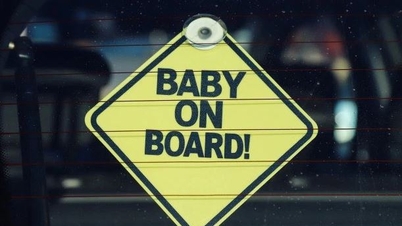







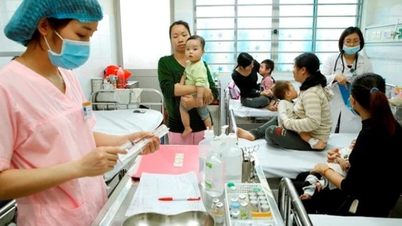



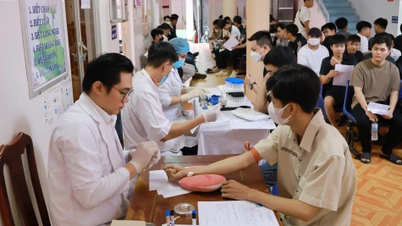










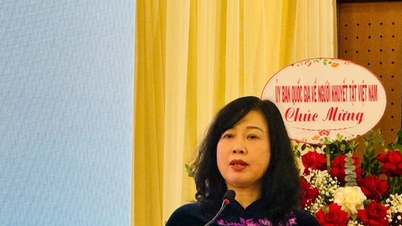
























































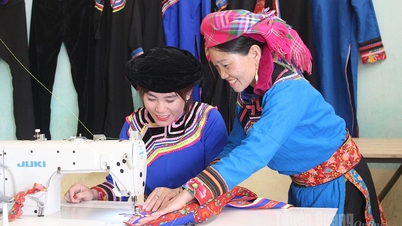





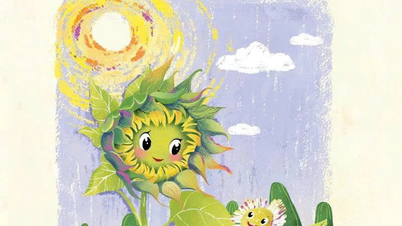














Comment (0)